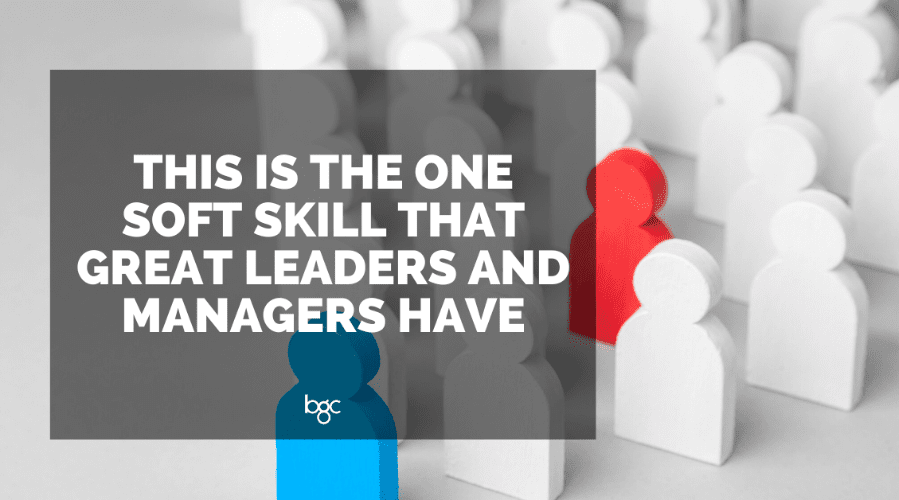10 years ago, there used to be an unwritten rule on showcasing emotions at the workplace. However, it can be hard for some employees to keep their emotions in check. Especially in a high stress environment such as the workplace.
Emotional intelligence is the skill that all organizations require, in order to navigate the various ups and downs of their employees' emotions (and survive)! Navigating emotions at work can be a tough run for some managers. But don't fret! As an HR outsourcing agency, we have some tips to help you cultivate this revered soft skill.
Gender Differences and Emotional Displays at the Workplace

It’s important for leaders to understand that emotions and gender differences go hand in hand in the workplace. An article by Forbes, suggests that women tend to cry at work while men are more prone to explosive displays of emotions. The reasons for this might be cultural. Women tend to suppress their anger. But this suppressed anger might erupt as tears. On the other hand, men are more comfortable showing their anger.
There is an important distinction that superiors should take note. Crying women are embarrassed by their emotional outburst. While men, especially young men, believe that their displays of anger are an effective management tool. Of course, the truth is that any negative emotional outburst can lead to feelings of demotivation amongst your staff.
Don’t leave emotional outbursts and breakdown in the hands of your HR department. Any form of emotional outburst should send a manager and/or supervisor on a self-reflective journey. There is often a reason behind the flare-up. It is your role to identify the trigger and find a way to resolve it to ensure both your employee’s mental well-being as well as productivity.
Of course there are a myriad of reasons behind workplace disputes. Some of the most common reasons are:
Work style differences: Different personalities will undoubtedly have different working styles. Some personalities might find it productive to work independently. Whilst others prefer working in teams. Having your employees take the MBTI (Myers-Briggs Personality Test) will give you an informed idea of the different personality types that make up your team. Thus giving you a better idea of how to manage them accordingly.
We’ve covered extensively on the MBTI Myers-Briggs Personality Type on the BGC Group blog. Click here to view the blog posts.Culture clash: Whether you’re managing a team in an SME or an MNC, culture clashes are bound to occur. This is simply because Singapore is a multiracial country with many different races coexisting together. However, cultural clashes can also happen due to factors outside of race. Factors such as personal values, practices, traditions, age, religion, and nationality can also cause culture clashes.
Poor communication: Bad communication will inevitably lead to workplace disputes. As a manager, you can combat miscommunication by setting clear communication policies for your team. Examples of clear communication policies include established project update guidelines.
Learn more about the different ways to manage poor communication here.
The Dangers of Unresolved Emotions and Conflicts

There are a number of long-term problems associated with unresolved emotions and conflicts at the workplace. These can also be interpreted as the consequences of leaders with low intelligence. They include:
Resignation: Perhaps the worst thing to come out of unresolved emotions and conflicts at the workplace is the loss of one or several employees. However, this is not a surprising twist of events. Unresolved conflict can often lead to feelings of frustration, sadness, hopelessness, and anger.
Destructive workplace behaviour: Destructive behaviours such as emotional withdrawal, workplace violence and aggression, as well as worsening relations amongst teammates to name a few.
Lack of productivity: Conflicts can sometimes come in between people and work. When people are embroiled in conflicts and their negative emotions, it prevents your workers from completing their tasks on time. Instead, your underlings will be focused on their emotions and the emotions of their oppressor.
Emotional Intelligence, the Key to Managing Your Employees

An emotionally intelligent leader is the key to managing employees and their various emotions. Despite being a soft skill, emotional intelligence is a difficult one to master. So, what does it mean to be emotionally intelligent?
The term emotional intelligence refers to an individual’s ability to recognize their own emotions to understand and empathise with others. Whilst anyone can be emotionally intelligent. A leader with refined emotional intelligence often have these four skills:
Self-awareness: Knowing and understanding your own emotions is the key to self-awareness. This allows you to understand your strengths and weaknesses.
Self-control: Self-managing your feelings is one of the main traits to being emotionally intelligent. Someone with self-control will be able to manage their feelings, emotions, and behaviors whether it’s impulsive or not. By expressing proper self-control over your own emotions, you can share different ways to manage your impulsive emotions with your co-workers.
Social-awareness: In order to be socially aware, one needs to have empathy. Empathy allows people to pick up on the emotions and feelings of others around them.
Managing relationships: The main benefit of emotional intelligence is the ability to control and manage relationships at the workplace. Leaders with a high emotional intelligence are able to inspire and help their workers. In addition, emotionally intelligent leaders communicate much more effectively. This leaves little room for miscommunication and misunderstanding at the workplace.
Prime minister Jacinda Ardern is a good example of a leader with high emotional intelligence. The politician received global acclaim after seeing her handle both the New Zealand COVID-19 crises and the earthquake that followed soon after.
Of course Ardern relied on other notable leadership traits such as openness and authenticity to supplement her emotional intelligence. Learn more about the qualities that make Jacinda Ardern an emotionally intelligent leader.
What are some soft skills that a good leader should have? Let us know in the comments section below!
Read More: How to Better Motivate Your Employees in Singapore
